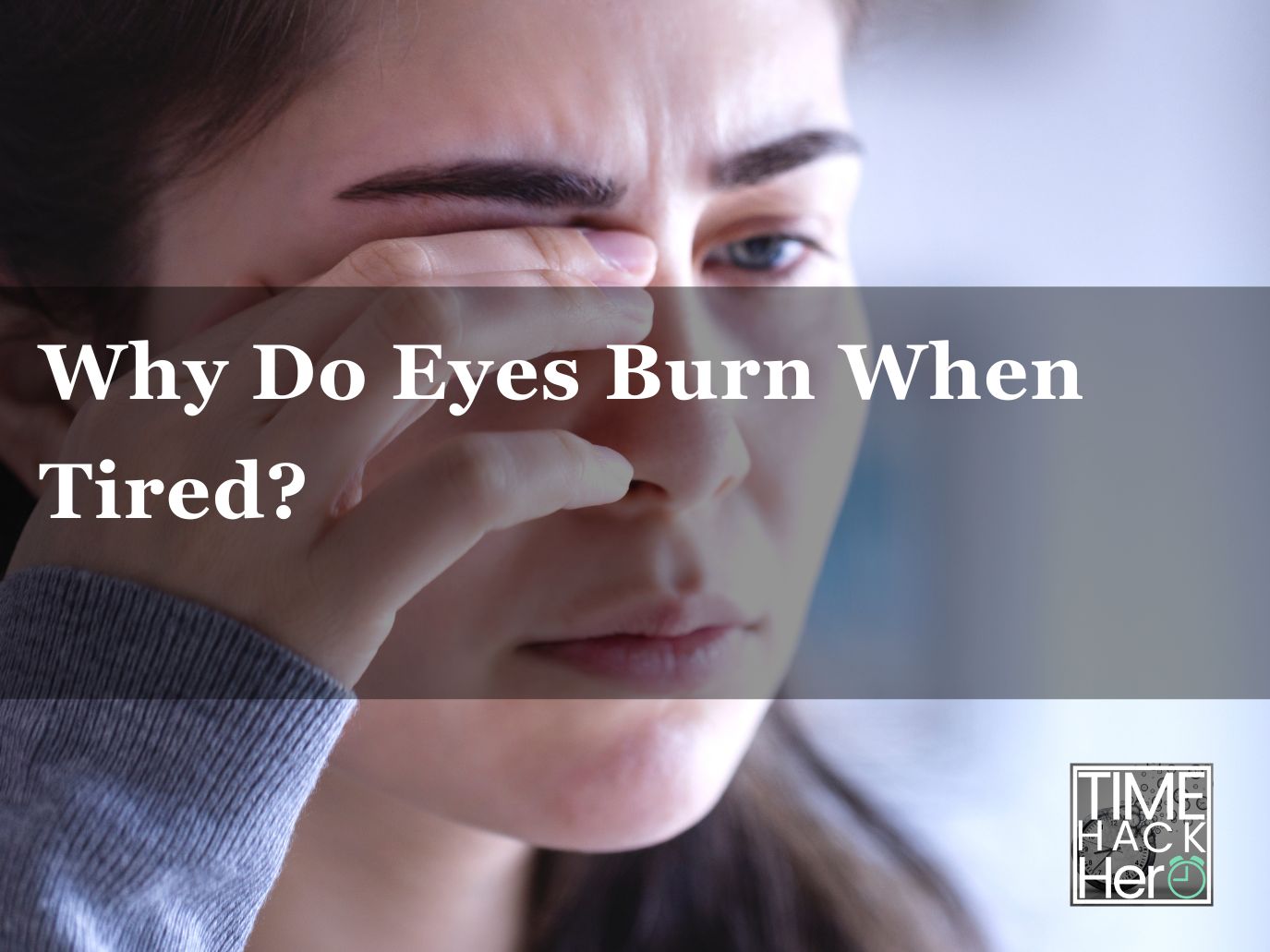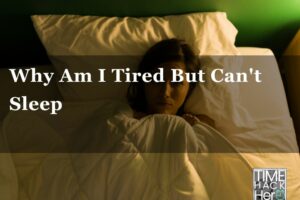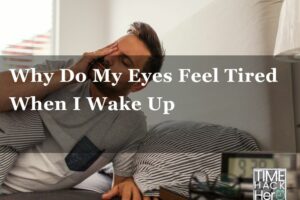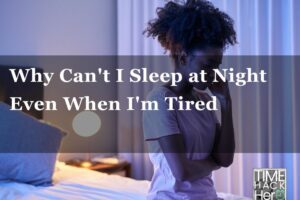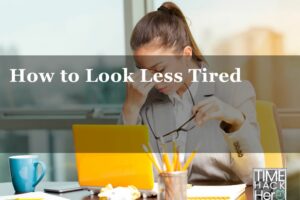It’s the end of a long day and your eyes are burning and feel gritty. This uncomfortable feeling of eye fatigue or strained eyes is very common, especially if you’ve been staring at a computer screen all day. But why exactly do your eyes burn when you’re tired?
There are several reasons why eye strain and irritation tend to flare up when you’re exhausted. Understanding what’s going on can help you take steps to prevent and treat this annoying symptom.
Table of Contents
Is This Normal?
Expertion of eye tiredness is very common. In fact, up to 90% of people who work at computers report some degree of eye strain. The American Optometric Association estimates that tens of millions of Americans experience this eye discomfort.
So if your eyes are burning, dry, or just feel tired after a long day, you’re definitely not alone. This is a normal response that people tend to experience when their eyes have been focused on a task requiring intense visual concentration for an extended time.
While eye strain or fatigue is common, that doesn’t mean it’s normal to live with eye discomfort on a chronic basis. If you’re struggling with irritated eyes on a frequent basis, there may be an underlying issue that needs treatment. But occasional eye tiredness after prolonged computer use or reading is usually nothing to be concerned about.
Why Do Eyes Burn When Tired?
Feeling like your eyes are on fire after a long day of work or late night studying? You’re not alone. Eye strain and irritation are common symptoms of fatigue. But why exactly do our eyes burn when we’re tired? There are a few key reasons.
1. The Role of Tear Production
One of the main causes of burning, irritated eyes is a lack of lubrication from tears. Healthy tear production is important for keeping the surface of the eye moist. Tears help wash away debris and prevent dry spots on the cornea and conjunctiva (the mucous membrane covering the front of the eye).
When we’re tired, our tear production can decrease. Studies show that sleep deprivation disrupts the tear film and decreases tear secretion. With fewer tears to keep the eyes hydrated, we’re more prone to irritation.
2. Eye Strain from Focusing
Eye strain is another major factor in tired, burning eyes. To see clearly, the ciliary muscles surrounding the lens have to contract to change the curvature and adjust the focus. The extra work of continually focusing our eyes, especially on close up tasks like reading or computer work, can exhaust the eye muscles.
As the ciliary muscles grow fatigued, it becomes more difficult to focus. We’re forced to squint or open our eyes wider to see properly. This strain and overuse of the eyes leads to pain, soreness, and burning.
3. Reduced Blinking
When we’re tired, we blink less frequently. Normally, we blink every 2 to 10 seconds. This helps to regularly spread tears across the surface of the eyes and clear away debris.
However, studies show that when we’re fatigued, our blink rate drops significantly. Infrequent blinking allows tears to evaporate, increasing dryness and friction. Staring at digital screens can also reduce blinking by up to 60%. Limited blinking when tired or while using devices exacerbates burning and irritation.
4. Eye Rubbing
Many people rub their eyes when they feel tired or fatigued. However, rubbing the eyes too frequently can actually worsen symptoms of eye strain.
Rubbing causes mechanical irritation and damage to the corneal epithelium – the outermost protective layer of the cornea. This leaves nerve endings exposed, making eyes feel more painful and irritated. The friction from eye rubbing also further dries the tear film.
Cocular changes that cause the burning sensation
When our eyes burn due to fatigue, there are several physiological changes taking place:
5. Corneal Disruptions
The cornea is the clear outer layer of the eyeball. It contains many nerve endings that are highly sensitive to touch, temperature, and chemicals.
Dry spots, erosions, and damage to the corneal epithelium from reduced tears and frequent eye rubbing can expose these nerve endings. This sends pain signals to the brain that feel like a burning sensation. Irritation and inflammation of the corneal surface can also cause eye pain.
6. Conjunctival Inflammation
The conjunctiva is the mucous membrane lining the inside of the eyelids and covering the white part of the eyes. When our eyes burn due to fatigue, the conjunctiva often becomes inflamed or irritated.
Inflammation reduces lubrication on the eye surface and also exposes more nerve endings that get stimulated by friction with the eyelids, causing burning and stinging. Allergic reactions and dryness can also trigger conjunctival inflammation.
7. Ciliary Muscle Spasms
The ciliary muscles controlling the shape of the lens are located behind the iris. They’re responsible for accommodation – adjusting the focus so we can see objects at different distances.
When our eyes are tired from overuse, these ciliary muscles can go into spasms. The rapid, uncontrolled contraction and relaxation of the muscles leads to pain that feels like a burning sensation within the eyes.
Additional Factors That Contribute
A few other factors can also play a role in creating the burning eye sensation when we’re tired:
- Allergies – Itchy, irritated, watery eyes from allergies can feel like burning when compounded with fatigue. Antihistamines may help.
- Dry air – Low humidity, air conditioning, or heating dries the air and worsens symptoms of an insufficient tear layer. Using a humidifier may help.
- Dehydration – Inadequate water intake causes the tear film to become more concentrated with mucins and proteins that can irritate the eyes.
- Medications – Some prescription medicines like antihistamines, beta blockers, birth control pills, and diuretics reduce tear production as a side effect.
- Age – Tear production normally decreases with age. Older adults are more prone to dry eyes that burn.
Ways to Fix Eye Burn When Tired
If your eyes are bothering you when you’re exhausted, here are some tips for relief:
Take Regular Breaks
Follow the 20-20-20 rule – every 20 minutes, take a 20 second break to look at something 20 feet away. This lets eyes refocus and gives them a break from near tasks.
Use Artificial Tear Drops
Applying preservative-free lubricating eye drops can help soothe irritation and rewet your eyes if they feel dry. Popular brands include Systane, Refresh, and TheraTears.
Do Eye Exercises
Simple eye exercises can reduce fatigue. Try slowly rolling your eyes in circles in both directions. You can also try looking side-to-side and up-and-down without moving your head.
Apply Warm Compresses
A warm, wet washcloth placed over the eyes for 5-10 minutes helps stimulate oil glands and opens up oil ducts. This helps lubricate eyes naturally.
Adjust Lighting
Bright overhead lighting, glare, and sitting in shadowy areas strain eyes. Try using desk lamps, adjusting blinds, or getting a screen glare filter.
Increase Humidity
Dry air aggravates dry eyes. Run a humidifier to add moisture back into the air.
Eat a Healthy Diet
Foods rich in vitamins C, E, zinc, omega-3s, and antioxidants may help reduce eye fatigue.
Limit Caffeine
Caffeine can impair tear production and lead to dehydration making eyes drier.
Use Screen Reading Mode
Switch your devices to nighttime/reading mode which cuts down on blue light exposure.
Take Eye Supplements
Oral supplements with lutein, zeaxanthin, and omega-3s have been found to improve eye strain symptoms.
See an Eye Doctor
If home remedies and lifestyle changes don’t provide relief, see an optometrist or ophthalmologist. You may need prescription eye drops for severe dry eyes, reading glasses, or vision correction.
Conclusion
Eyes that burn, feel tired, dry, or irritated are trying to tell you they need a break. While occasional eye fatigue is normal, chronic strain takes a toll on your peepers and productivity.
By understanding the common causes of eye irritation when tired and taking proactive steps to manage it, you can keep your eyes feeling fresh and working comfortably. Don’t ignore sore, fatigued eyes or just “push through” persistent discomfort. Listen to what your eyes are telling you and take action to prevent and treat this bothersome symptom.
Frequently Asked Questions
Q: Are eye exercises helpful for tired eyes?
A: Yes, doing some simple eye stretches and movements can help reduce fatigue. Try looking side to side, up and down, and rolling your eyes slowly in big circles. This gives your eye muscles a break from sustained stare.
Q: Should I use Visine for eye burn and tiredness?
A: Visine gets rid of redness, but it won’t actually make your eyes feel better. It constricts blood vessels on the surface of the eye, which can rebound and make eyes feel worse later. For relief, use preservative-free artificial tears instead.
Q: Can staring at phones cause permanent eye damage?
A: No, looking at phones won’t directly cause permanent injury or damage. But chronic digital eye strain can lead to headaches, blurry vision, and difficulty concentrating. So take frequent breaks and limit screen time to prevent these types of disruptive symptoms.
Q: Is it OK to close your eyes for 20 minutes when tired?
A: Yes, taking a 20 minute power nap and closing your eyes can absolutely help refresh fatigued eyes. In fact, this eye rest is recommended as part of the 20-20-20 rule for managing digital eye strain.
Q: Should you wear glasses if your eyes hurt?
A: If your eyes chronically hurt or feel tired, it’s a good idea to visit an optometrist. You may need glasses to correct an underlying vision problem contributing to eye strain. Reading glasses or computer glasses could help. even through periods of intense focus or lost sleep.

